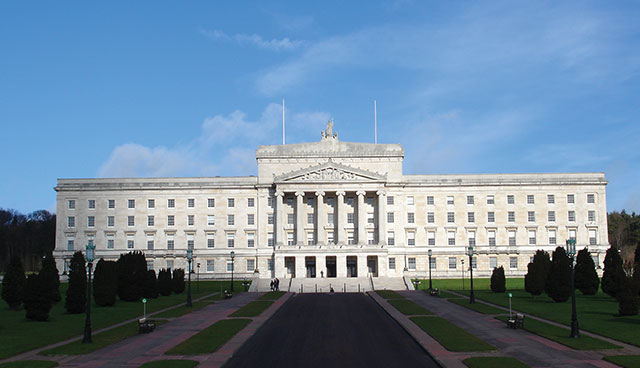Stormont return no panacea

As hopes of a revived Stormont Executive recede into the horizon, so too apparently does the scope for nuance in analyses of the stasis. The potential of a return to Stormont, however slim, will not act as a panacea for Northern Ireland’s ailing public services.
Commentators Brian Feeney and John Simpson have both found common ground in their analysis of public sector degeneration in Northern Ireland. In an opening salvo, Simpson suggests that “the rhetoric has lost its way. The tension in some public services… is, more often than is admitted, a knock-on from a reducing (real value) budget”. Feeney, meanwhile, follows up with an assessment that “public services will continue to deteriorate under this Conservative Government. That’s their political philosophy”.
On a weekly basis, highly emotive examples of intolerable conditions experienced by individuals in contact with the health service or within education are drip fed into the public consciousness. The blame, we are told, rests at the feet of squabbling politicians who should instead be sidestepping inherent societal cleavages for the greater good. ‘Get up there and do something’. This is both overly naïve and politically expedient in equal measure.
Civil Service Head David Sterling has made a plea for a return of the Executive. Speaking with the BBC, he commented: “We have a clear need to transform the health service, we have a clear understanding of what is actually needed to do that. What we need are just some of those key decisions to allow us to go ahead.”
However, the uncomfortable reality is that each day the actualities of ever-shrinking public sector budgets take grip. This is a reality at odds with the narrative peddled by both the Northern Ireland Office and the Irish Department of Foreign Affairs, and subsequently facilitated by elements within the local media.
Policy decisions, as Sterling has asserted, are important, but when swimming against the tide of a dramatically decreasing block grant allocation, they don’t provide much in the way of buoyancy. To suggest otherwise is too simplistic and, in aside from anything else, clichéd.
As outlined by leading economist John Simpson, successive real-terms reductions in the Northern Ireland budget, by an annual average of £100 million over the last seven years, have triggered significant spending pressures which have become increasingly apparent in the public sector. This in turn is symptomatic of deliberate austerity policies.
Annual action plans within the various facets of the public sector are increasingly difficult to implement. This was the case when ministers were in situ in their departments, it remains the case in their absence and it will continue to be the case if the Executive is restored. The Treasury is king and ministerial decisions are framed by what they handed.
Alternative thinking, such as a mistaken hope that the Treasury will suddenly relent, is delusional as the cuts are felt relative across the UK. If an additional funding package secured by the DUP deal with the Conservative Party comes to fruition, the subsequent allocations are predetermined and will merely act as a sticking plaster for deep-seated constraints necessitated by routine spending efficiencies. Services deemed to be superfluous, such as road maintenance, verge cutting and other supposedly aesthetic frivolities are the first to go.
As public services across the UK decline, the simple truth is that public services in Northern Ireland must operate within the parameters of the Treasury’s block grant allocations, as per the Barnett Formula. With or without devolved government, this is an inalienable truth.






